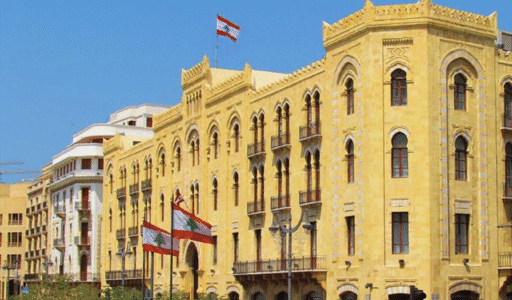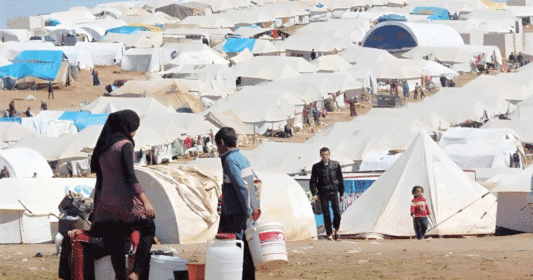Beirut municipal elections, who are the contenders? Surprising and shocking alliances!
May 27, 2025

Beirut Municipal Elections
This year’s Beirut municipal elections take on an exceptional character, amid an overlapping political scene and unprecedented alliances, most notably the controversial alliance between Hezbollah and the Lebanese Forces, in a single list under the slogan “Beirut gathers us.” Six electoral lists are competing for the 24-member municipal council, representing traditional and emerging forces, making these elections a real test of the balances of political and popular forces in the capital.
Beirut Municipal Elections Six lists and delicate balances
Six electoral lists are competing in this year’s Beirut municipal elections, differing in their backgrounds and political alliances, but they all converge on one goal: Winning a seat on the capital’s municipal council in the absence of the Future Movement.
1. “Beirut gathers us” list
The “Beirut Tamaqna” list headed by Ibrahim Zeidan is the most representative in terms of the number of parties and personalities supporting it. The list includes an unprecedented coalition of the Lebanese Forces, the Kataeb, the Free Patriotic Movement, Hezbollah, Amal, the Progressive Socialist Party, Tashnak, the Projects Association, former minister Mohammed Choucair and MP Fouad Makhzoumi, under the auspices of Bishop Elias Odeh.
This alliance, despite the stark political contradictions between its components, was built on the basis of protecting the “equality” between Muslims and Christians in the municipal council, and trying to avoid scenarios of sectarian write-offs such as what happened in Tripoli.
However, this alliance is not without tensions. Some forces such as the Lebanese Forces and Makhzoumi tried to impose their conditions at the beginning of the negotiations, rejecting the presence of parties such as Hezbollah. Sensing the threat of a counter-list, they were forced to come to the negotiating table and make concessions.
Despite the list’s promotion of the principle of coexistence and equality, the performance of its constituent parties over the past years, especially with the Future Movement, has not been encouraging and has contributed to the deterioration of the capital’s service and development conditions.
2. The “Beirut Madinati Coalition” list
This list includes figures affiliated with the Change MPs, such as Fadi Darwish, supported by MPs Ibrahim Mneimneh, Paula Yacoubian, Melhem Khalaf, Mark Daou, Firas Hamdan, and Halima Kakour.
However, the list lacks an attractive development speech, and its electoral rhetoric focuses on “resisting Hezbollah” rather than presenting clear programs.
The irony is that the list, despite adopting an anti-establishment rhetoric, is itself the product of shaky alliances, as it emerged after sharp disagreements among its members, raising questions about their ability to work together later in the municipal council.
3. “Beirut loves you” list
Headed by retired Brigadier General Mahmoud al-Jamal, supported by MPs Nabil Badr and Emad al-Hout (Islamic Group).
The list is based on a wide Sunni popular base, especially in areas such as al-Tarq al-Jadida.
It is considered a serious contender for the Sunni vote in Beirut, especially after the exclusion of the Islamic Group from the “Beirut Tamaqna” list.
4. “Awlad al-Balad” list
It is headed by former Beirut Municipality member Rla El Agouz, and includes active young faces.
It has the undeclared support of figures such as former MP Salim Diab.
This list poses a threat to Beirut Madinati due to the proximity of the social profiles of the members of the two lists, which could lead to vote fragmentation.
5. “Citizens of Beirut”
Backed by former minister Charbel Nahhas, this list offers a radical opposition discourse that targets sectarianism and financial power.
But it suffers from a lack of party coverage and popular support, limiting its chances of winning.
6. The “Beirut Our Capital” list
Headed by Adnan al-Hakim, the list is incomplete and centered around Sunni figures only, making its influence limited geographically and sectarian.
The Beirut Municipal Elections: A Pretext or a Goal?
The broad “Beirut Togetherness” coalition was promoted as a way to ensure equality between Muslims and Christians.
However, the reality is that the primary goal is to ensure party quotas.
without offering any real project to save Beirut from deterioration.
The irony is that the coalition also witnessed disagreements over the representation of mukhtars.
The Lebanese Forces refused to endorse Michel Pharaon’s candidate, and objected to candidates affiliated with Anton Sehnaoui.
The Forces also faced internal criticism for “compromising on the blood of Roland Murr.”
in reference to the Karm al-Zeitoun incident, which angered its popular base.
Beirut audience between frustration and apathy
There are 198,005 voters in Beirut, including 133,304 Muslims and 41,849 Christians.
in addition to 22,852 expatriate voters. The turnout remains unknown.
especially in light of widespread frustration with the performance of the political class and a divided opposition.
Despite the pluralistic richness of the regulations, the absence of a comprehensive development project in most of them.
makes the battle more about quotas and balances, rather than presenting a clear vision for Beirut’s future.
: Beirut Municipal Elections Battle … More than just a municipality
This year’s Beirut municipal elections are not just a local entitlement.
Rather, they are an indicator of public opinion trends in the capital, the willingness of parties to compromise and ally, and the fragility of Change as a political force.
Sunday’s results will determine not only who runs the capital’s affairs.
But which political model do the Lebanese want for Beirut: one of quotas, or one of real reform?
The post Beirut Municipal Elections, who are the contenders? Surprising and shocking alliances! appeared first on 961 Today Lebanon Today.









